An early lesson you want to teach your students is the difference in books that tell stories and books that give information. I have found that the best way to teach this is within context of different types of texts. Let's read more about some resources that I have used to teach the differences in the two types, as well as meet our pesky friend, the BOOK BANDIT!
We begin the unit learning the text features of both types of texts by creating this anchor chart and using real text examples to discuss the differences between the two. I print the anchor chart from the pack as a poster, along with the two mini posters, for students to reference throughout the unit. I printed the sorting cards on cardstock and students helped me attach them to the anchor chart during our whole group discussion.
They then completed their own sort below. This is great to glue into their reading journal for additional reference during the unit.
I have lots of activities that I use included within the pack, but you don't have to use them in the order laid out in this blog post. ;) The activity below is one I like to always do with a new reading skill. My students become reading detectives during this cooperative group activity. Each group gets an envelope with the following recording sheets and a text, which might be a book or a passage, inside. They work with their group to decide if the book tells a story or gives information. They have to prove their thinking by providing three pieces of evidence from the text. After you do a few rotations of these throughout your unit, you can add it to a learning center for additional practice.
Throughout the unit, I kept two bins of books labeled books that tell stories and books that give information. I referred to a few of them during the unit. But at the end of the unit, I threw them all over the classroom for students to walk in and find the next morning with a letter from the Book Bandit! He had came in and made a mess of our sorted books, so it was the students' challenge to sort them back into their proper bins. They had to provide three pieces of evidence from the text to prove their thinking and they attached it to a craft of the Book Bandit that they had made. This was such an engaging activity and a great assessment!
I have included lots of other resources in the pack to use during your lessons. Throughout the unit, students pretended to be detectives, so they wore these little badges!
We used these interactive notebook pieces for different texts.
If you have Scholastic flyers, you can have students sort them in these flapbooks. This is another great quick assessment!
We always finish our lessons with an exit ticket for me to quickly assess their understanding of the different features of these two types of texts.
After completing a unit, I love to give my students new bookmarks for them to use during independent reading just to remind them of the previous skill taught so that they can independently apply those skills during reading.
Click any of the pics in the blogpost to check this resource out! As always, happy teaching and happy reading!



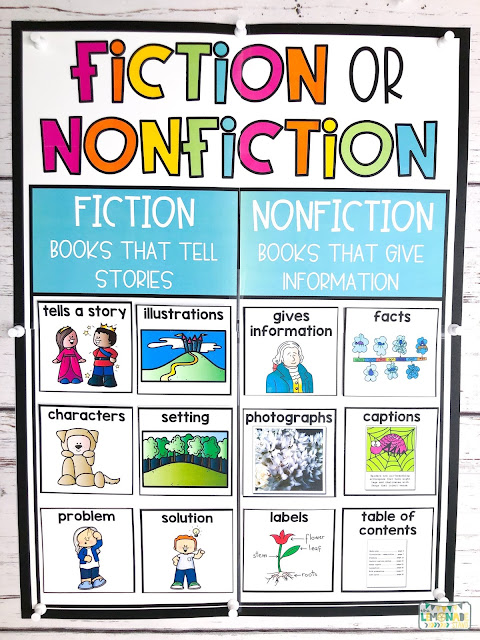
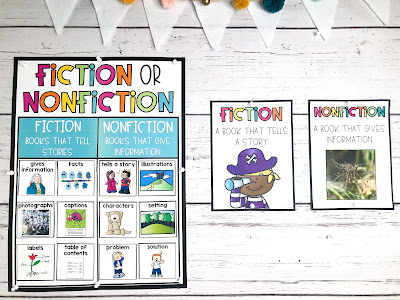
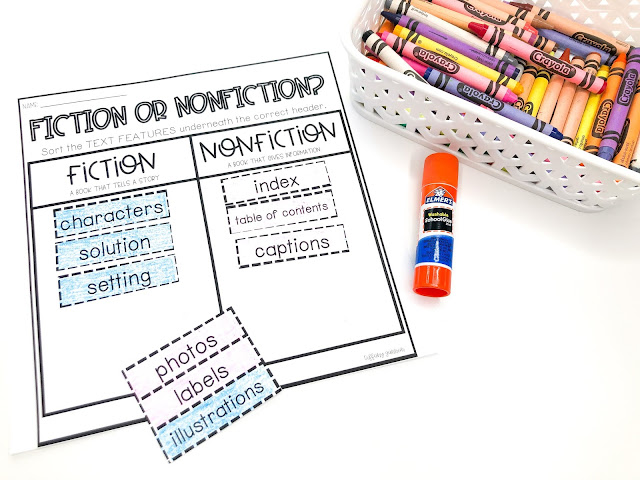
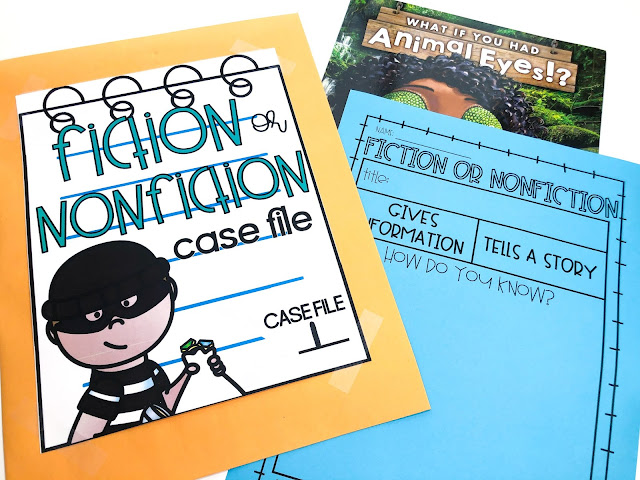


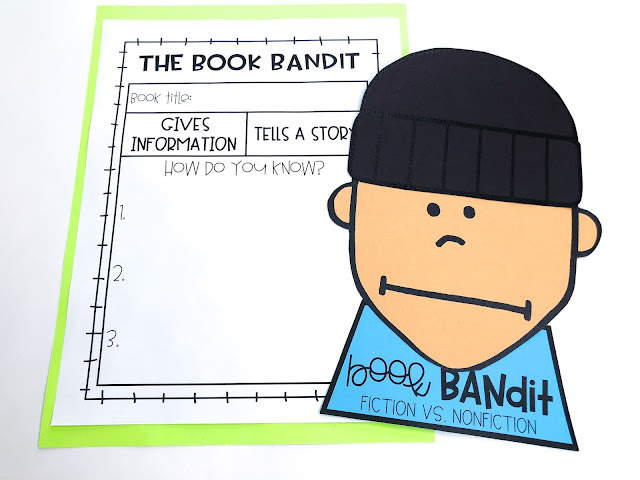


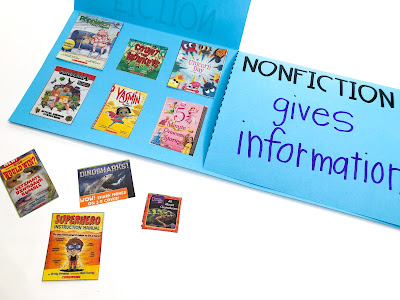

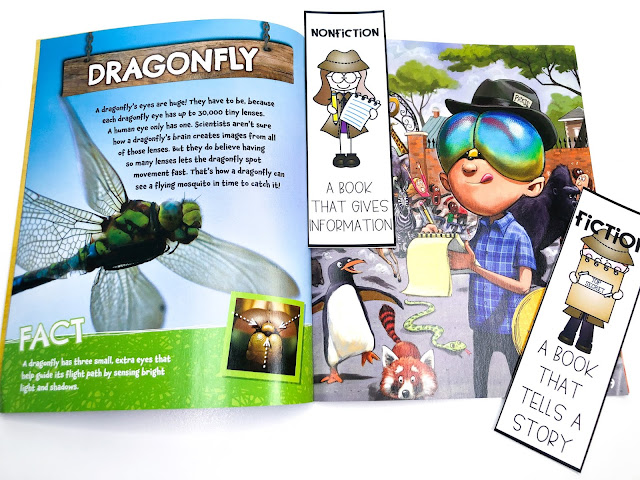

No comments
Post a Comment
Note: Only a member of this blog may post a comment.